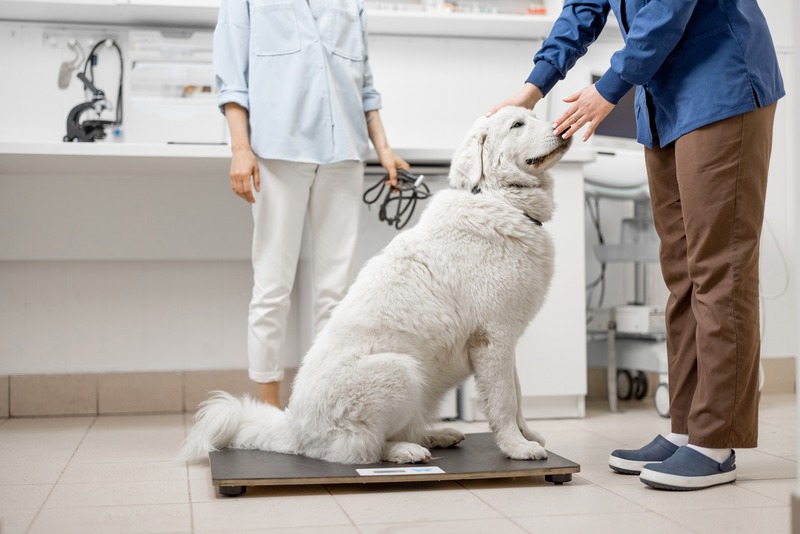
25, Sep 2024
Who Should Be Present During My Pet’s Wellness Exam? Important Matters
Taking your pet for a wellness exam is crucial to ensuring their health and well-being. These exams help detect potential health issues early and provide a baseline for your pet’s overall health. You’ve come to the right place if you’re wondering who should be present during your pet’s wellness exam. We’ll break it down for you, offering straightforward advice to make the process smoother for you and your pet.
Who Should Be Present During My Pet’s Wellness Exam?
During a pet’s wellness exam, having someone there who knows the pet well is important. Usually, this would be the primary caregiver. Here are some key reasons why:
-
Familiarity with The Pet’s History: The primary caregiver can provide the most accurate information about the pet’s medical history, diet, behavior, and any changes noticed.
-
Comfort for The Pet: Pets often feel more secure with someone they trust. This can make the exam less stressful for them.
-
Decision Making: If the vet suggests tests or treatments, the primary caregiver can make informed decisions.
What to Expect During a Wellness Exam
Routine checkups for cats and dogs are an essential part of maintaining their health. Understanding what typically happens during a wellness exam can help you prepare. Here’s a breakdown of the process:
-
Initial Assessment: The vet will perform a general assessment, checking your pet’s coat, eyes, ears, and teeth.
-
Vital Signs: They’ll measure the pet’s weight, temperature, pulse, and respiration rate.
-
Physical Examination: This involves feeling the pet’s body and checking for lumps, pain, or abnormalities.
-
Discussion: The vet will ask about the pet’s behavior, appetite, exercise routine, and any concerns you might have.
-
Tests and Vaccinations: Depending on the pet’s age and health status, the vet may recommend blood tests, fecal exams, or vaccinations.
Young Pets Require Extra Attention
It’s even more critical to have the primary caregiver present for puppy and kitten health. Young pets require frequent check-ups to monitor their growth and development and ensure a healthy start. They may also need vaccinations and deworming treatments during their first year.
Dealing with Multiple Pets
If you have more than one pet, you might wonder if bringing them all at once is practical. Here are a few tips to make it easier:
-
Separate Appointments: If handling multiple pets simultaneously seems overwhelming, consider scheduling separate appointments.
-
Extra Help: Bringing an additional person can help manage multiple pets during the visit.
-
Checking with The Clinic: Ask the clinic if they offer special arrangements or have specific recommendations for multiple pets.
Exceptional Cases Where Additional People Might Be Beneficial
While the primary caregiver’s presence is crucial, there are situations where having an extra person can be helpful. Consider these scenarios:
-
Elderly or Special Needs Pets: An extra person can help manage pets with mobility issues or special care.
-
Behavioral Issues: Some pets may be anxious or aggressive during exams. An additional person can help keep the pet calm and smooth the process.
-
Larger Breeds: If a large dog gets too excited or uncooperative, an extra person can assist in handling it.
Additionally, many vet facilities offer services that include guidance and support for handling pets with specific needs during wellness exams. It’s always good to check with your Edgewater pet hospital if they have any particular recommendations based on your pet’s requirements.
What to Bring to The Exam
Preparing for the wellness exam can help ensure a smooth experience. Here’s a quick checklist:
-
Medical Records: Bring any past medical records, vaccination history, and a list of medications your pet is taking.
-
Questions and Concerns: Jot down any questions or concerns you might have about your pet’s health, diet, or behavior.
-
Treats and Toys: Having some favorite treats or toys can help keep your pet calm and cooperative during the exam.
Post-Exam Follow-Up
After the exam, it’s essential to follow through with any recommendations made by the vet. This might include scheduling additional tests, modifying your pet’s diet, or administering medications. Your vet will provide detailed instructions, so ask for clarification if needed.
Regular check-ups are essential for maintaining puppy and kitten health; the same attentiveness applies to adult pets. Establishing a good relationship with your vet and ensuring open communication can significantly affect your pet’s well-being.
The Benefits of Routine Checkups
Regular wellness exams offer numerous benefits for your pets, including:
-
Early Detection: Many health issues, such as dental disease, diabetes, and arthritis, can be managed more effectively if detected early.
-
Preventative Care: Routine exams allow for timely vaccinations, parasite control, and dietary advice, which can prevent potential health problems.
-
Peace of Mind: Knowing that your pet is in good health and receiving proper care can give you peace of mind.
Most vet clinics offer services that cater to both routine and specialized needs and will help keep you informed about the best practices for your pets.
Managing Pets During the Exam
Ensuring your pet remains calm and comfortable during their wellness exam can make the process more efficient and less stressful. Here are some tips:
-
Familiarization: Take your pet to the clinic before the exam to help them get used to the environment.
-
Positive Reinforcement: Reward your pet for good behavior during the visit with treats and praise.
-
Remain Calm. Your pet can pick up on your anxiety, and staying calm can help keep your pet relaxed as well.
Final Thoughts
Being present during your pet’s wellness exam, mainly as their primary caregiver, is essential. It ensures accurate communication, comforts your pet, and helps with immediate decision-making if needed. Remember that routine checkups are vital for pets of all ages, from young puppies and kittens to older pets. Being prepared and involved can play a significant role in maintaining your pet’s health and happiness.
- 0
- By Heidi






